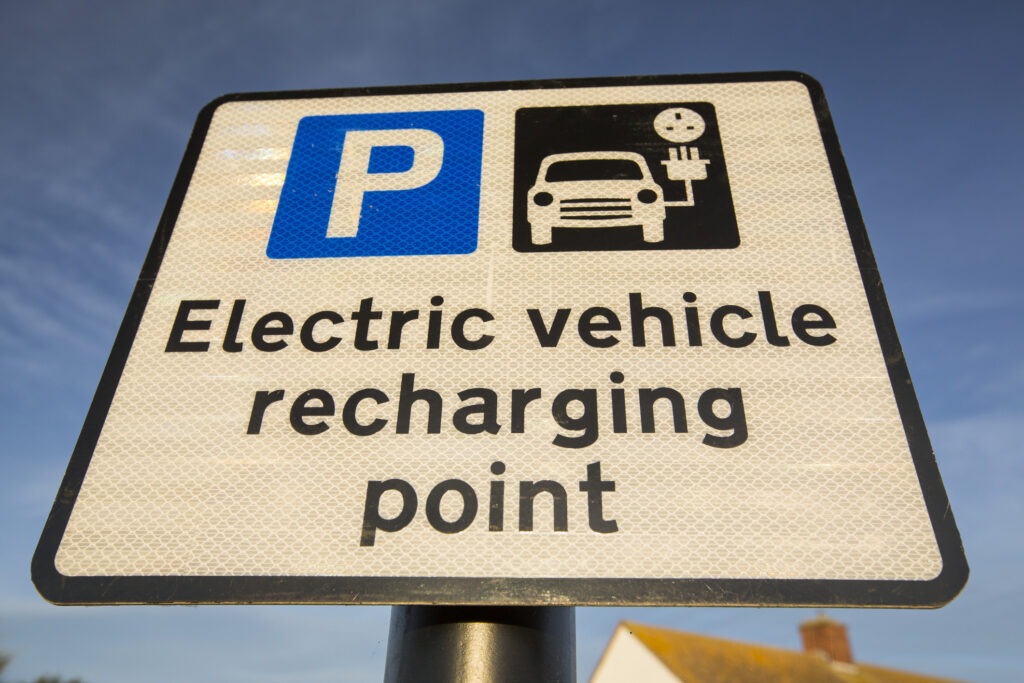Are battery-electric vehicles really in crisis in the UK?
08 January 2024

UK new-car registrations ended 2023 on a positive note, but battery-electric vehicle (BEV) deliveries tumbled. This sparked concerns that all-electric cars were seeing a drop in popularity. Autovista24 special content editor, Phil Curry, examines if these fears are premature.
New-car registrations in the UK grew for the 17th-consecutive month in December, ending 2023 on a high. However, BEV sales slumped. Yet reports of a crisis in the market may be too soon.
Data released by the Society of Motor Manufacturers and Traders (SMMT) shows that in December, there were 141,092 new-car registrations in the UK. This equates to a 9.8% increase on the same period in 2022.
While positive, this marks the second month in a row, and the second time in 2023, that growth has been in the single figures. Since the peak of July, which saw a 28.3% rise, the numbers have fallen each month. December almost matched November’s 9.8% increase.
This declining rate of growth suggests that while new-car registrations remain positive, the market recovery could be slowing. The entire automotive industry was hit by the COVID-19 pandemic with major disruption in 2020 and 2021. Then at the end of 2021 and into the first seven months of 2022, a supply-chain crisis caused vehicle deliveries to stall.
The latter part of 2022 saw new-car registrations increase massively following months of declines, and it is impressive that the market has continued to improve against the rush of deliveries that were seen between August and December of that year.
Across 2023, the UK recorded 1.9 million new-car registrations, the best full-year result since the pre-COVID-19 yardstick of 2019, and a 17.9% rise on 2022. However, December was down 5.3% compared to the same month in 2019, while the year itself was down 17.7% in comparison.
Are BEVs in trouble?
The greatest surprise in the registration figures was the performance of BEVs. While the technology flew high across the year, the last two months of 2023 have seen deliveries slump. December was the worst-performing month for the powertrain, with registrations falling 34.2%, as 27,841 units took to the roads.
This impacted the BEV figures from across the year. While new-car registrations in 2023 grew by 17.9%, the all-electric market share stalled. Its 16.5% yearly figure was down slightly from 16.6% in 2022. Despite this, BEV registrations across 2023 grew by 17.8%.
However, several conditions make the powertrain’s performance more complicated to judge. Further examination of the figures suggests that the market did improve in 2023, making suggestions of a BEV crisis, unfounded.
The number of BEV registrations in December 2022 is the primary issue. Petrol and plug-in hybrid (PHEV) registrations remained stable in the month, and full hybrid (HEV) models increased their tally by around 5,000 units year-on-year.
But BEVs improved by over 14,500 units, accounting for 32.9% of the new-car market. This remains the best monthly market share for BEVs and was not beaten throughout 2023.
This increase pushed the year-to-date market share from 15.1% in November 2022 to 16.6% by the end of December. These figures do not correlate with the rest of the market at that time, suggesting December 2022 was an abnormal month for BEV registrations. There were likely several factors at play.
Firstly, the supply-chain crisis seriously impacted the market in 2022, and BEVs were hit particularly hard. All-electric vehicles use more semiconductor chips than internal-combustion engine (ICE) models. This meant their deliveries were delayed slightly longer, so customers started receiving their cars towards the end of 2022.
The end of the plug-in car grant halfway through 2022 also meant a rise in orders and more BEVs required for delivery by December 2022.
Carmakers may also have been pushing to deliver BEVs before the end of the year to meet their CO2 targets. While there were no fines to be implemented at the end of the year, unlike in 2021, many companies had internal targets to meet.
With the disruption throughout most of 2022, a push for BEV registrations will have helped bring emissions figures down.
Another impact to consider is the introduction of the ZEV mandate at the beginning of 2024. This requires 22% of each carmaker’s registrations in the year to come from zero-emission cars, a target that some may struggle to meet.
So, rather than pushing for registrations at the end of the year to reduce annual CO2 figures, some companies may have held back on deliveries. This would have allowed them to push registrations into January, counting towards respective quotas.
These scenarios mean that the numbers from December 2022 need to be considered carefully. Looking at the figures from last month without comparison, BEVs achieved a 19.7% market share, their second-highest of the year, after August’s 20.1% share.
This is also considerably higher than the 15.6% share recorded in October and November. Looking at the total market share across the first 11 months of 2023, BEVs held a 16.3% total, up from the 15.1% recorded in the same period in 2022.
Therefore, the 34.2% drop in BEV registrations during December is not the beginning of the end for the powertrain. Instead, it is a return to normal against a very distorted figure in December 2022.
The latest forecast from EV-volumes.com suggests that in 2024, BEVs will take a 21.5% share of the market. This means all-electric models will continue to grow their registrations tally across the next 12 months.
Improvements for ICE
Combined with mild hybrids (MHEVs), petrol remained the most popular powertrain type in December, and across the year. The fuel grew its new-car registrations by 35.6% in the month, and 18.1% in 2023, with a market share of 56% over the 12-month period.
Diesel also experienced a positive month in December, a rarity for the fuel in these times. Including MHEVs, it saw an increase in deliveries of 12%, although its yearly total fell by 8.3%. This meant diesel’s market share for the year dropped, from 9.6% in 2022 to 7.5% last year.
Full hybrids (HEVs) recorded robust growth of 18.5% in the month and 27.1% in the year, leading to a 12.6% market share in 2023. PHEVs also performed well up 45.4% in the month and 39.3% over the 12 months.
However, their 7.4% market share, an increase on 2022’s total of 6.3%, meant it missed out on overtaking diesel, and remains the country’s least-popular powertrain.
Fleets driving UK registrations
Private consumer demand fell by 14% in December, while across the year it remained stable, declining only 0.1%. With the cost-of-living crisis and high inflation influencing the purchasing decisions of many, this stability is an achievement.
This is especially true when considering that at the end of 2022, carmakers were prioritising deliveries to individuals rather than businesses. However, the recent decline in private sales may cause concern into 2024.
It was once again up to the fleet market to prop up the new-car registrations figures with a 32.9% increase in deliveries last month, and a 38.7% improvement across the whole year, reaching over one million units. Business registrations fell 47.3% in December, but these only make up a small proportion of the market. Across 2023, business registrations declined just 1.5%.
Looking ahead to 2024
The latest forecast from EV-volumes suggests that the UK market will grow by 3.7% in 2024, falling just short of two million units. This figure will be passed in 2025, with the market continuing to grow until 2030.
The UK automotive industry faces a challenging 2024. The ZEV mandate is likely to give carmakers a challenge as they push for overall sales, while keeping watch over BEV figures. For those manufacturers with a smaller zero-emission vehicle offering, the situation will likely be even more difficult.
‘With vehicle supply challenges fading, the new-car market is building back with the best year since the pandemic,’ commented Mike Hawes, SMMT Chief Executive. ‘Energised by fleet investment, particularly in the latest EVs, the challenge for 2024 is to deliver a green recovery.
‘The UK Government has challenged the UK automotive sector with the world’s boldest transition timeline and is investing to ensure we are a major maker of electric vehicles. It must now help all drivers buy into this future, with consumer incentives that will make the UK the leading European market for ZEVs.’



